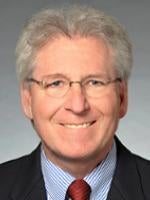What do commercial pilots, FBI agents and air traffic controllers have in common? These individuals all face mandatory retirement ages.2 The Association of American Medical Colleges concluded that one-third of practicing physicians are 65 or older,3 but unlike other industries, there is currently no mandatory retirement age for physicians. Some hospitals and medical staffs have begun implementing policies known as, “Late Career Practitioner Policies,” to detect the presence of physical, psychological or cognitive deficiencies that may affect a physician’s ability to practice medicine consistent with acceptable standards of care. But critics question whether these policies subject older physicians to discriminatory scrutiny.
Risk vs. Reward: Evaluating the Risks and Benefits of Aging Practitioners
Physicians are not immune from the vicissitudes that come with aging. Numerous studies demonstrate that aging can negatively impact cognition, judgment, and physical senses such as sight and hearing.4 But for every study that discusses the pitfalls of aging physicians, there is another study that praises aging physicians.5 Older physicians can provide invaluable training and mentoring to younger physicians, and some studies indicate that older physicians may actually make less errors than younger, less experienced physicians. Due to the conflicting literature, some say there is insufficient data to support the policies. But are they correct?
Are Late Career Practitioner Policies Responsible or Discriminatory?
Some hospital systems and providers attempt to mitigate the risk of adverse events from aging physicians by adopting late career practitioner policies. But providers who choose to adopt the policies may also risk violating the following statutes:
-
Age Discrimination in Employment Act6 (ADEA). The ADEA makes it unlawful, among other things, for an employer to:
-
Fail or refuse to hire or to discharge any individual or otherwise discriminate against any individual with respect to his compensation, terms, conditions, or privileges of employment, because of such individual’s age; and
-
Limit, segregate or classify his employees in any way which would deprive or intend to deprive any individual of employment opportunities or otherwise adversely affect his status as an employee, because of such individual’s age.
-
-
Americans with Disabilities Act7 (ADA). The ADA states that an employer “shall not require a medical examination and shall not make inquiries of an employee as to whether such employee is an individual with a disability or as to the nature or severity of the disability, unless such examination or inquiry is shown to be jobrelated and consistent with business necessity.”8
A recent example provides insight regarding how regulators view these policies. On February 9, the Equal Employment Opportunity Commission (EEOC) filed a complaint against Yale New Haven Hospital (Hospital).9 The complaint was filed after a complaint brought by a pathologist and class of older physicians who alleged that the Hospital’s policy violated the ADEA and the ADA to the EEOC failed to be successfully conciliated.
As background, the medical staff physicians were not employees of the Hospital, but rather employees of Yale Medical School (YMS). An affiliation agreement between the Hospital and YMS fully integrated their operations, and all YMS faculty with clinical department appointments were required to obtain medical staff privileges at the Hospital.
In March 2016, the Hospital adopted a policy that mandated neuropsychological and ophthalmologic screening exams for all medical staff ages 70 or older. The screenings focused on evaluating the cognitive function of the individuals by measuring items such as information processing, memory and concentration levels, and psychomotor efficiency. A medical staff committee reviewed the physicians’ medical results and made recommendations to the Credentials Committee based on the results. Physicians were graded on a scale that ranged from: “Passed, Qualified Passed, Borderline Deficient, Deficient, or Failed.” When Yale applied the policy in April 2019 against 145 individuals ranging from ages 70 to 84: 80 Passed, 38 Qualified Passed, 14 individuals were “Borderline Deficient,” one was “Deficient,” and seven “Failed.” Of those who were retested, a number of them resigned and others were placed under additional scrutiny.
The EEOC argued that the Hospital’s policy violated the ADEA by subjecting practitioners age 70 and above to unlawful and willful discrimination and classification. Moreover, the EEOC argued that the policy deprived the practitioners of their right to equal employment practices. The EEOC also asserted that the Hospital violated the ADA by interfering with the practitioners’ right to enjoy employment free from unlawful medical examinations.
Another issue is whether the physicians can be treated as Hospital employees based on certain control factors even though they are otherwise independent contractors. An alternative theory which the EEOC is asserting is that the Hospital will qualify as a covered third-party employer. Employers and covered third-party employers are prohibited from discriminatorily interfering with an individual’s employment opportunities.10 Here, the class of physicians are employed by YMS, not the Hospital who implemented the policy. The EEOC argued that the Physicians should be treated as Hospital employees based on the affiliation agreement. But even without an agreement, a claimant can establish an employment relationship by showing that the employer has sufficient and direct control over the individual.11 The EEOC is not yet required to prove the basis of its claims and must point to evidence that demonstrates that the Hospital had sufficient control over the physicians.12
Should Providers Implement Late Career Practitioner Policies?
The recent EEOC complaint against Yale may serve as a warning for healthcare providers who decide to implement late career practitioner policies solely based on age. Providers seeking to implement these policies should seek legal counsel to determine whether its physicians will be treated as employees or independent contractors for purposes of Title VII, the ADEA or the ADA.
Other ways which providers currently oblige to ensure that patient safety through age neutral policies include the following:
-
Code of Conduct and/or Disruptive Behavior Policies;
-
FPPE/OPPE Policies. Identify department-specific criteria to evaluate physicians on an ongoing and neutral basis. In addition to established criteria, the hospital can include several identified factors associated with aging and physical, psychological and cognitive decline irrespective of age and then proceed accordingly13;
-
Physician Wellness Committees. Designate a multidisciplinary committee to evaluate medical staff for impairments that could result in adverse patient consequences when there is a reasonable suspicion of impairment; and
-
Non-Disciplinary Remedial Measures. Implement non-disciplinary, remedial steps to prevent adverse events when deficits are identified in lieu of restricting or terminating privileges such as encouraging retraining and reeducation, providing or requiring consultations with other physicians for second opinions, and providing memory aides to all physicians.
1 Article adapted from a May 12, 2020 presentation by Michael R. Callahan, Esq. of Katten and Carol S. Cairns, CPMSM, CPCS, President of PRO-CON. (“Presentation”)
2 Congress has approved fixed retirement ages for certain industries that affect public safety. See 49 U.S.C. § 44729 (mandating retirement for commercial airline pilots at age 65); see also Public Law 101-509 (mandating retirement for FBI agents at age 57); see also Public Law 92-297 (mandating retirement for air traffic controllers at age 56).
3 AAMC, New Findings Confirm Predictions on Physician Shortage, Apr. 23, 2019.
4 Douglas H. Powell, Profiles in Cognitive Aging (1994) (explaining declining mental functions associated with aging); Grace ES, Wenghofer EF, Korinek, EJ, Predictors of physician performance on competence assessment: Findings from CPEP, The Center for Personalized Education for Physicians (2014) (finding older physicians were more likely to provide unsafe outcomes); American Medical Association, Report 5 of Council on Medical Education Competency and the Aging Physician (2015) (identifying factors that affect clinical performance).
5 Roger Collier, Diagnosing the Aging Physician, CMAJ, Apr. 22, 2008 (quoting Kevin Eva, The Aging Physician: Changes in Cognitive Processing and Their Impact on Medical Practice, Acad. Med., Oct. 2002 (finding “older doctors are superior at particular tasks, such as making initial diagnoses”).
6 Age Discrimination in Employment Act of 1967, 29 USC § 621, et. seq.
7 Americans with Disabilities Act of 1990, 42 USC § 12101, et. seq., as amended by the Americans with Disabilities Act Amendment Act of 2008.
8 Id.
9See EEOC v. Yale New Haven Hospital, Civil Action No. 3:20-cv-00187; see also EEOC, https://www.eeoc.gov/newsroom/eeoc-sues-yale-new-havenhospital-age-and-disability-discrimination.
10 Jeffrey R. Pittman, Employment Law for Business, at 129 (2013) (explaining third-party interference can exist even where an employment relationship has never existed between a third-party employer and an individual).
11 Some factors include to show that an employer has sufficient control over an individual to establish an employer-employee relationship include: controlling when, where, and how the individual performs the task; if the task requires a high level of skill or expertise; providing supplies to the individual; setting the schedule of the hours and duration of the task; and paying an hourly, weekly, or monthly wage rather than by task.
12 Def.’s Answer to Pls.’ Compl. EEOC v. Yale New Haven Hospital, Civil Action No. 3:20-cv-00187.
13 See Presentation at slides 48-54.





 />i
/>i

